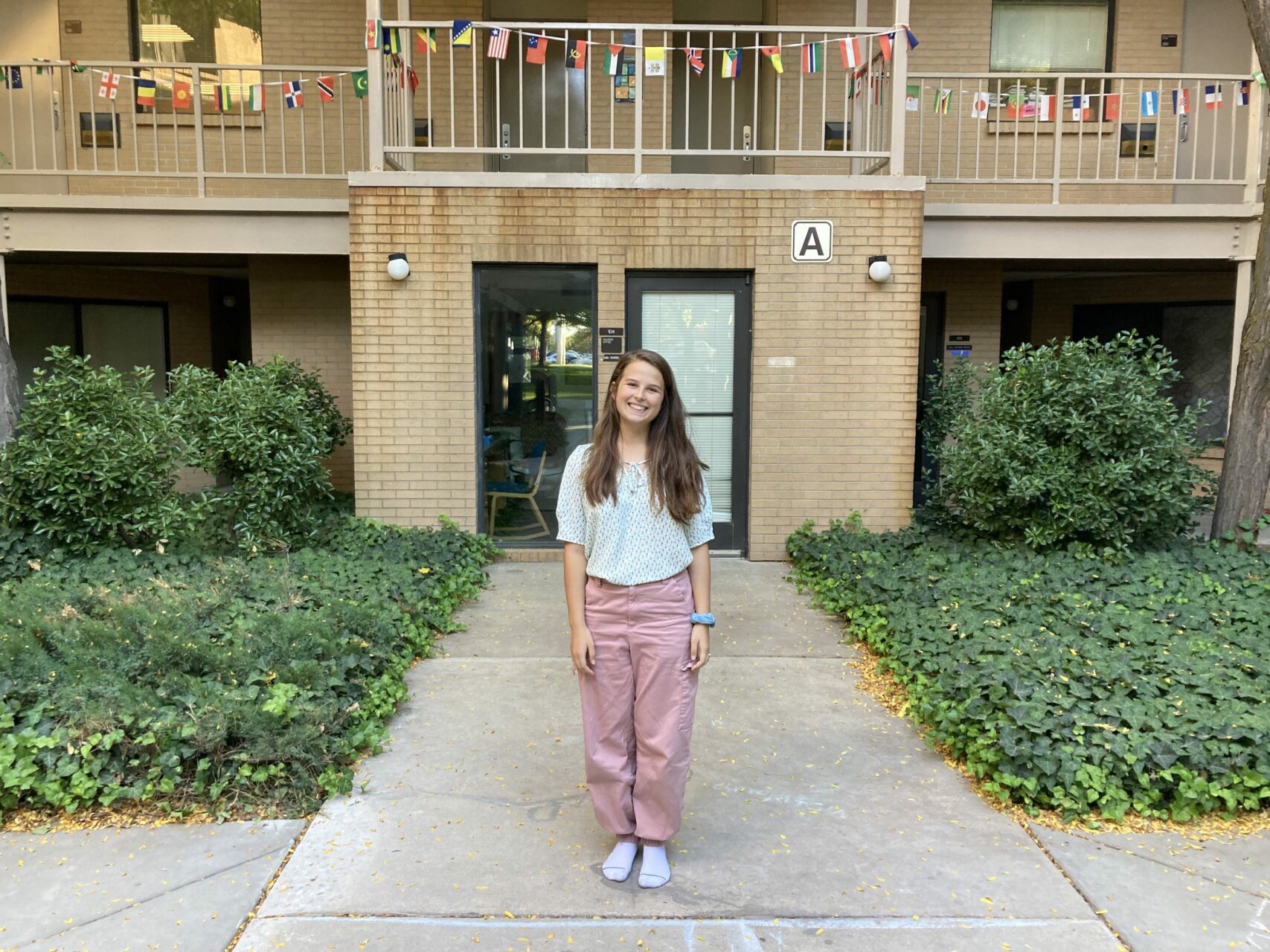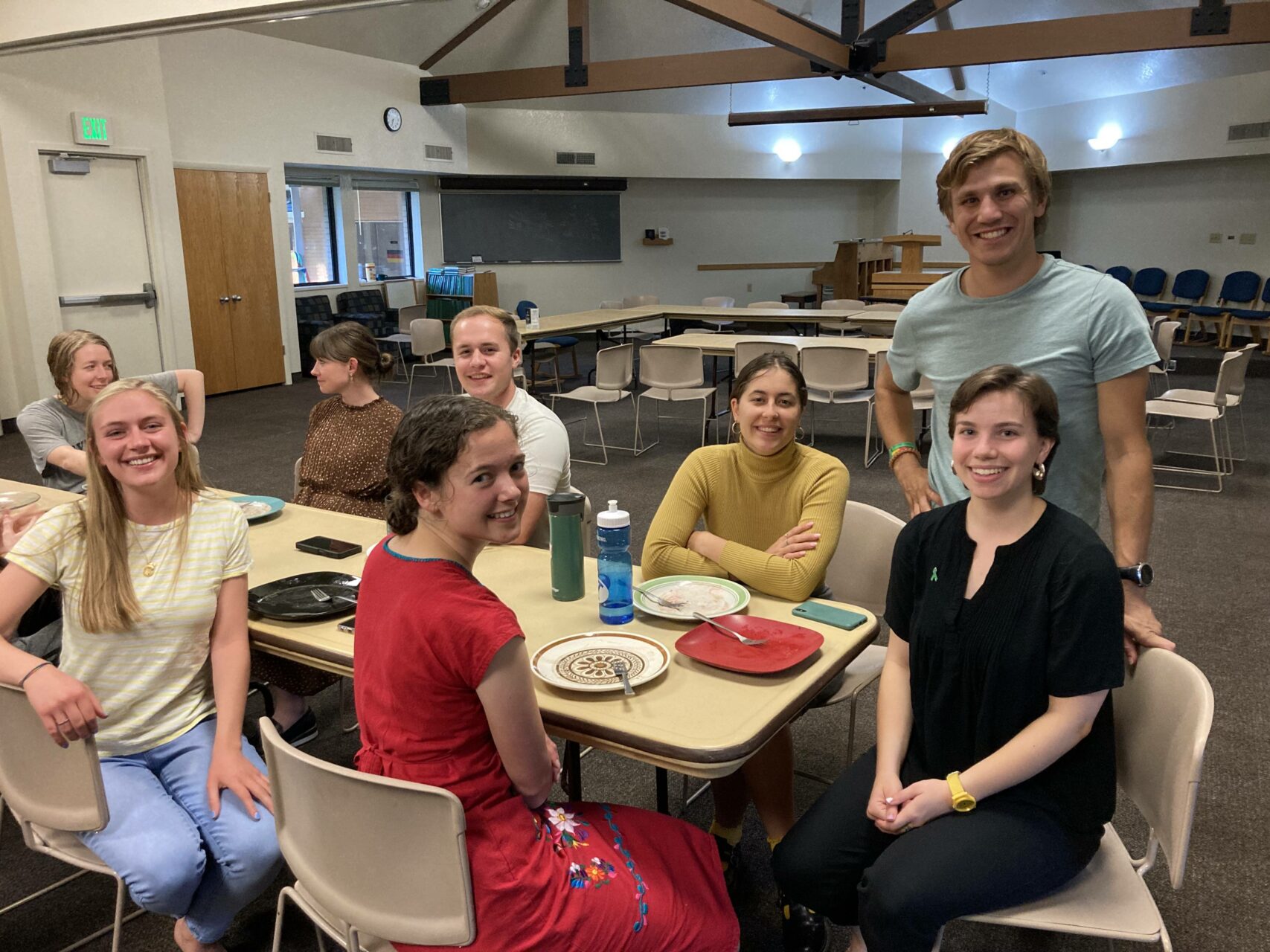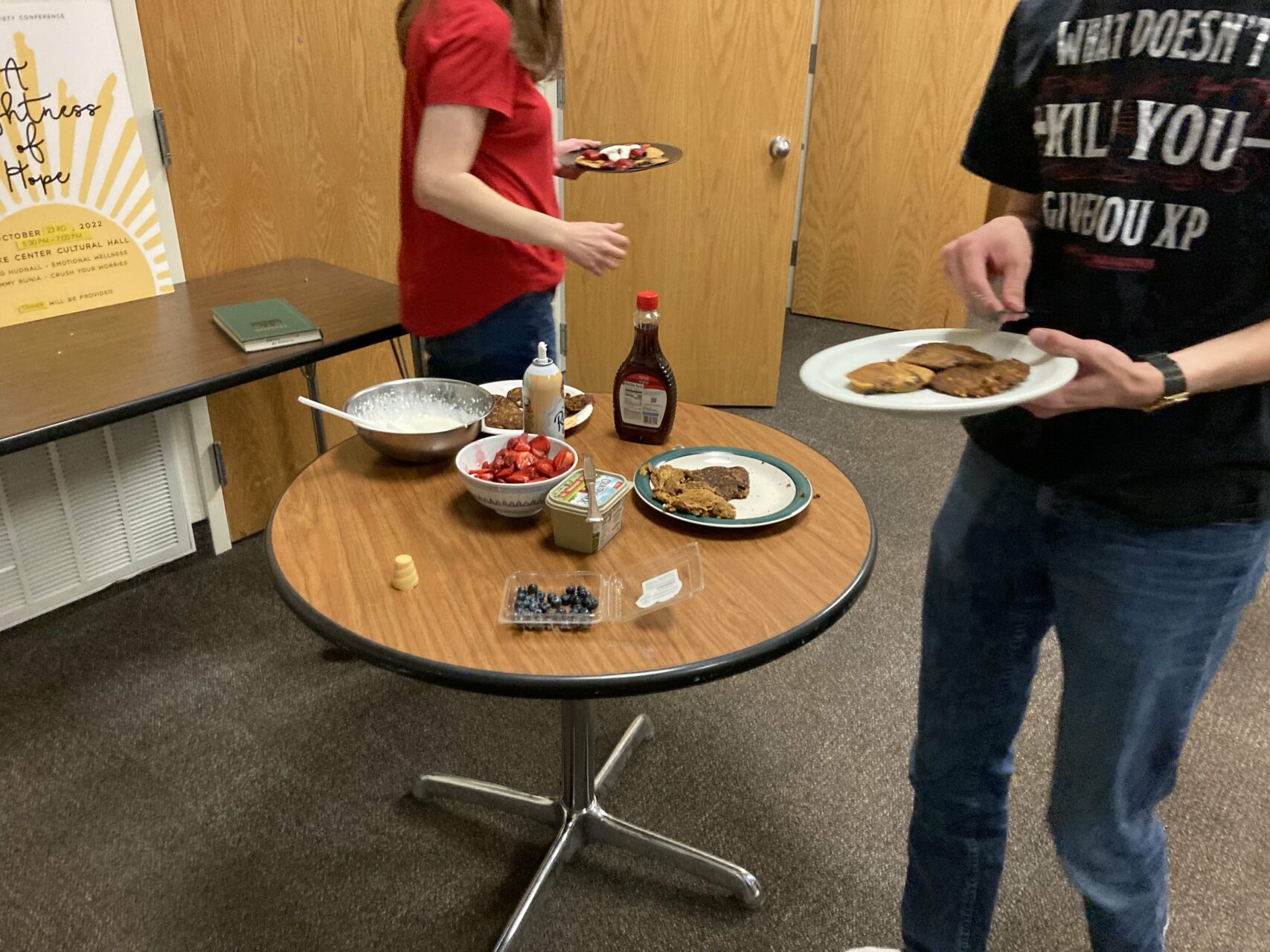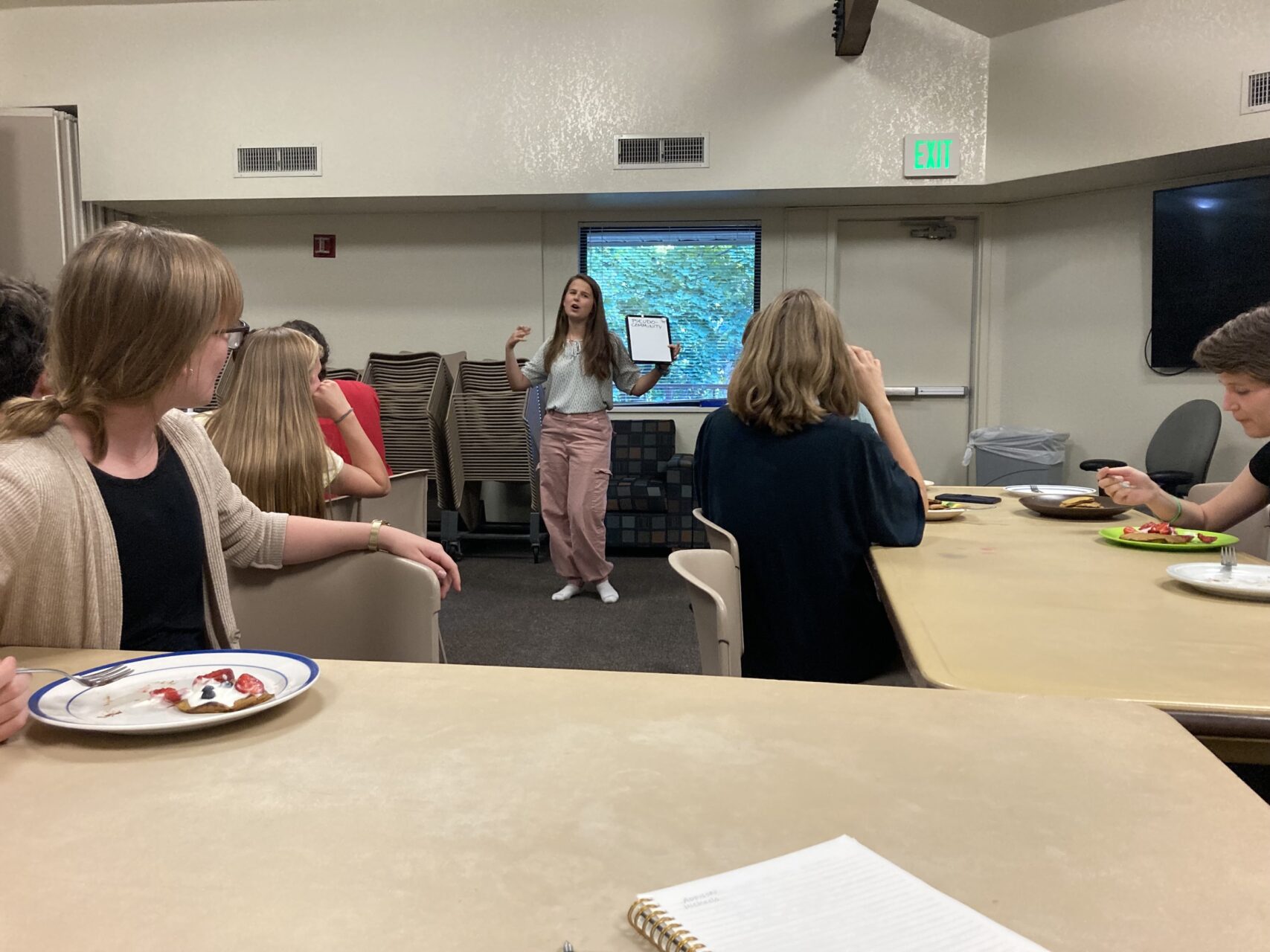
The Language Immersion Student Residence, formerly known as the Foreign Language Student Residence, recently changed its name with the goal of clarifying the program’s purpose and eliminating confusion.
The LISR is a language immersion program offered to BYU undergraduate students — particularly intermediate-level, non-native speakers — looking to improve their language skills.
Julia Bottita has been the program coordinator for the LISR for the past 17 years. She said the program’s name had remained the same for a number of decades — that is, until a change was approved last March.
She said the name change was inspired by some of the confusion she encountered in the campus community; some people thought the LISR was a housing option for international students, and others did not even know what the program was for.
“What goes on there is immersion, language immersion, and that word has been sorely missing,” Bottita said.


Rachel Madsen, an English teaching major in the Spanish house, is entering her third semester in the LISR program. She said, “We have a high density of international students, but the program is still a majority native English speakers.”
Madsen said student residents are expected to speak only the target language while in the apartment, watch only media in the target language and attend mandatory hour-long dinners Monday-Thursday with the other members of their language house. On top of that, she said residents participate in an additional two credit hour language class.



Dr. Hans-Wilhelm Kelling founded the LISR program in the 1970s, and is the program’s current director. In the late 80s, he submitted three proposals for a centralized apartment complex. The structures that BYU’s board of trustees approved are still in use today. He said he thinks the name change is appropriate.
“The decision to remove the term ‘foreign’ was in response to a trending away from the term. Foreign often means strange,” Kelling said. “But we don’t want to differentiate between different people like that.”
Kelling and Bottita said the community’s response to the new name has been positive, but some of the students in the program are more apprehensive.
Esteban Colman, a native Paraguayan and Spanish language facilitator, said, “There’s some emotional attachment to the old name. But I do feel like the new name clarifies things. So many people ask me if I’m there to learn English.”
Newer students, like Addison Abel, who has been in the French house for two semesters, and Michaela Lamb, who has been in for one year, said they understand why older students are attached to the old name, but that they are not bothered by the change.

Although some residents will miss the old name and acronym, the students remain avid in their praise of the place and its mission. Madsen is a resident advisor for the LISR. She applauded the program’s social scene, saying people like it so much, “we kind of joke that once you come to the FLSR, you don’t really leave.”
According to Bottita, many of the residents are returned missionaries. She said that even though they have lived in a foreign country for a year or two, they have room to learn too.
“People who come from missionary backgrounds, many of them have said, ‘I started learning on my mission, but I really learned the language here,’ because now they aren’t focused on just one subject,” Madsen said. “Now, I am living life in this language.” She said one of her favorite things has been learning to play board games, such as Settlers of Catan, in Spanish.
Coleman said he loves the community fostered by the LISR program. He is in his fourth year at the Spanish house, working on his doctorate degree in biochemistry. Language facilitators like Colman are responsible for enabling language learning in apartments. He said they enforce the program’s rules, correct grammar and teach new vocabulary. Coleman said it is rewarding to watch people improve, even in just a semester.
Coleman said he has learned a lot too. “I picked up ASL from the LISR. I’m trying so hard to open an ASL guys apartment,” he said. He said people will sometimes pick up languages they are not studying, simply by exposure.
The program is an especially effective atmosphere for linguistic learning, said Kelling, because, unlike a study abroad, the focus is entirely on language rather than a cultural experience.
Kelling said research has shown that students who participate in LISR rate higher on language assessments than those who study abroad.
Zach Breit, a senior in the Korean house, said he enjoys living with people who speak the same language as him, and have similar language goals. That, and meeting with professors one on one, has made the program worth it, he said.
“I’ve enjoyed it and I would definitely recommend it to other people. I feel like not a ton of people know about it,” Breit said. “I think that if they tried it out, they’d really enjoy it — and get some credit out of it too.”
While other universities, like Middlebury College, also have immersion programs, Kelling said having a centralized apartment complex dedicated to language learning is unique to BYU.
“When faculty from other universities come and see it they’re quite impressed,” said Kelling. “I think ours is the model program.”




